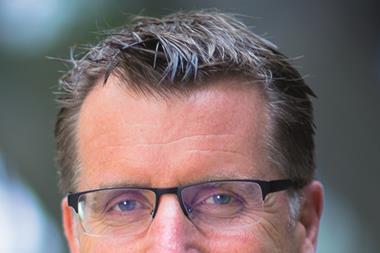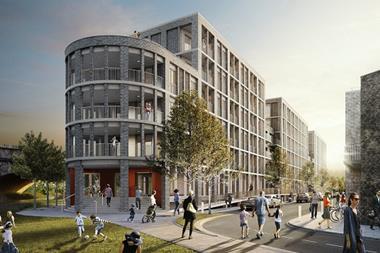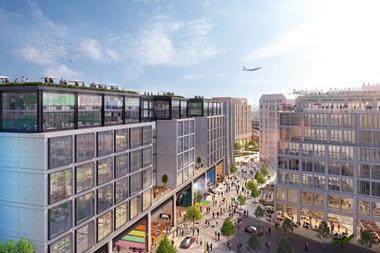Development has changed and the role of the developer has changed with it. No longer are we being asked to simply design and deliver buildings.

Our tenants, residents and visitors expect more.
A good developer these days also needs to be a good curator. We need to understand not only what our customers want from us, but also what they want from their customers, from their staff and from each other. The notion of the business eco-system has expanded beyond the realm of co-working into the wider commercial environment.
Businesses expect their buildings and the spaces around them to represent who they are and how they want to be perceived by their key stakeholders.
Nearly all businesses, from the largest to the smallest, have one overriding business priority: talent - how to attract it and how to retain it. Curating the right environment for their talent to prosper should be a good developer’s number-one responsibility.
But modern development very rarely allows businesses to express themselves in this way. Typically, buildings are modest in architectural aspiration, focused on the landlord’s requirements rather than those of the occupier, lacking in personality and inflexible in their use.
Developers are often hampered by building restrictions or planning conditions, but equally many are hampered by their own lack of creativity. There are too many single-use, inward-looking developments that create very little value for anybody outside their buildings and indeed only minimal value to those inside.

There are, of course, some notably exceptional areas where a vibrant mix of culture, leisure, business and residential results in an exciting and successful environment. Kings Cross would certainly be one of them. But it is no coincidence that virtually all of the world’s most popular places have evolved over time, allowing people to create character and interest.
Residents know why they like living where they do and visitors make a decision every Sunday morning before they set off for a day out
It is amazing how little influence we allow ourselves to take from our own personal experiences. Almost without exception, when asked for our favourite memories or places, we will recall great experiences, not great buildings.
Rare opportunity
We will think about people, not just places. And yet we rarely put people and experiences at the centre of our thinking when conceiving and delivering new developments. We forget that the lunch in a hard-to-find restaurant down a side street tastes so much better than the same restaurant on the high street. We forget about the importance of curiosity and adventure to the human psyche.
But our customers don’t. Occupiers know what will attract their employees, brands know how they will create loyalty, residents know why they like living where they do and visitors make a decision every Sunday morning before they set off for a day out. We just have to listen.
We know that at Silvertown, in London’s Royal Docks, we have a rare opportunity to create an environment that our customers crave. We have the space and the flexibility to curate a vibrant eco-system of culture, business and community and an opportunity to set a new blueprint for future development.
But equally, we are humble enough to understand that we are not the greatest creatives, nor are we leading the field of innovation. Rather, our role is to provide the platform for our occupiers, residents and visitors to deliver their own vision of their future.
Our vision is to create a ‘piece of city’, to fast-forward the normal evolution of development by listening to what our occupiers, residents and visitors want. Our ambitions are great, but we know that our customers expect nothing less.






























No comments yet